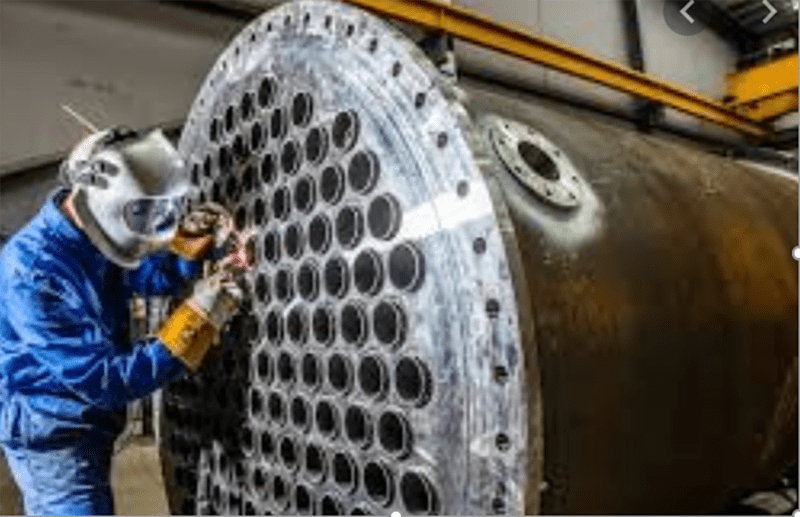Demystifying API 510 Inspectors: What You Need to Know
Are you intrigued by the world of industrial inspections? Are you fascinated by the meticulous process of ensuring safety and compliance in pressure vessels and industrial pipelines? If so, then becoming an API 510 Inspector may be your calling! In this blog post, we will demystify the role and responsibilities of an API 510 Inspector, providing you with valuable tips on how to succeed in this exciting field. From understanding the ins and outs of pressure vessel inspections to mastering the art of industrial sandblasting, we’ve got you covered. So buckle up as we dive into the fascinating world of Houston api 510 inspectors!
Tips for Becoming a Successful API 510 Inspector
- Develop a Strong Technical Foundation: To excel as an API 510 Inspector, it’s essential to have a solid understanding of engineering principles and industry standards. Familiarize yourself with codes such as ASME Section VIII Divisions 1 and 2, API RP 572, and API RP 576. Stay up-to-date with the latest revisions and amendments.
- Gain Practical Experience: While theoretical knowledge is important, hands-on experience is equally crucial in this field. Seek opportunities to work alongside experienced inspectors or participate in internships where you can gain practical knowledge of pressure vessel inspections, industrial sandblasting techniques, and industrial pipeline inspection procedures.
- Hone Your Communication Skills: As an inspector, effective communication is key when interacting with clients, engineers, and other team members involved in the inspection process. Be able to articulate your findings clearly both verbally and in written reports.
- Attention to Detail: The devil lies in the details! A successful API 510 Inspector possesses exceptional attention to detail – from meticulously reviewing documentation to conducting thorough visual examinations during inspections.
- Continuously Educate Yourself: The field of industrial inspections is ever-evolving; therefore, staying updated on new technologies, regulations, and best practices is crucial for success. Attend seminars or workshops related to your field regularly to expand your knowledge base.
- Pursue Certification: Consider obtaining certifications such as the API 510 Pressure Vessel Inspector certification which demonstrates your competency in performing pressure vessel inspections according to industry standards.
Remember that becoming a successful API 510 Inspector requires continuous learning coupled with practical application of technical skills – so be prepared for a rewarding journey filled with exciting challenges!
The Role and Responsibilities of an API 510 Inspector
The role of an API 510 inspector is crucial in ensuring the safety and integrity of industrial equipment, particularly pressure vessels. These inspectors are responsible for conducting thorough inspections and evaluations to ensure compliance with industry standards.
One of the primary responsibilities of an API 510 inspector is to perform visual inspections of pressure vessels, looking for any signs of damage or corrosion. They also conduct non-destructive testing techniques, such as ultrasonic testing or radiographic examination, to detect any hidden flaws that may compromise the vessel’s structural integrity.
In addition to inspections, these professionals are involved in reviewing inspection reports and determining if repairs or maintenance work is necessary. They also play a key role in assessing risk levels associated with various components within a facility and making recommendations for preventative measures.
API 510 inspectors must possess extensive knowledge of codes and standards related to pressure vessels, such as ASME Boiler and Pressure Vessel Code. They must also stay updated on new regulations and technologies in order to effectively carry out their duties.
The role of an API 510 inspector requires attention to detail, technical expertise, and a commitment to ensuring the safety of personnel working with pressure vessels. Their work helps prevent accidents caused by equipment failure while maintaining compliance with regulatory requirements.
Conclusion
Becoming an API 510 inspector is a challenging yet rewarding career choice in the field of industrial inspections. These professionals play a crucial role in ensuring the safety and compliance of pressure vessels and pipelines, making them indispensable to various industries.
To succeed as an API 510 inspector, it is important to have a strong foundation of knowledge and skills in areas such as welding, non-destructive testing, corrosion mechanisms, and industry codes and standards. Continuous learning and staying updated with the latest developments in inspection techniques are vital to excel in this profession.
The responsibilities of an API 510 inspector encompass conducting thorough examinations, analyzing data, identifying defects or potential issues, recommending appropriate repairs or maintenance procedures, and overseeing the completion of necessary corrective actions. Their expertise helps prevent accidents, minimize downtime, extend equipment lifespan, and ultimately contribute to overall safety within industrial operations.
Moreover, API 510 inspectors often collaborate closely with other professionals like engineers and maintenance personnel to ensure that all inspection activities are performed accurately and efficiently. Effective communication skills are essential for providing clear reports on inspection findings as well as conveying any concerns or recommendations to relevant stakeholders.

